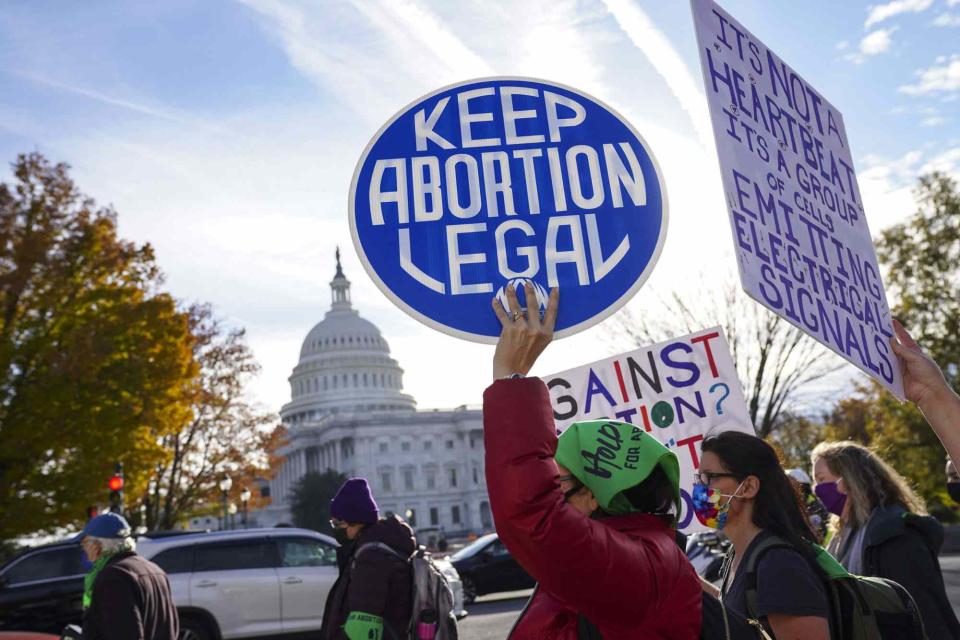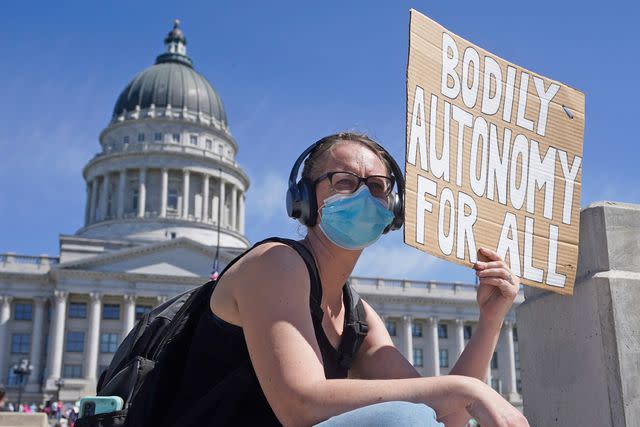One Year After 'Roe v. Wade' Was Overturned — Here’s Where Abortion Laws Stand in the U.S.
One year after the ruling, new polls show that 61% of Americans disapprove of the Supreme Court’s decision to overturn 'Roe v. Wade'

It’s been one year since the overturn of Roe v. Wade, the landmark Supreme Court decision of 1973 that granted women the right to an abortion in every state.
The June 24, 2022 ruling reversed nearly 50 years of precedent and changed the landscape of women's reproductive rights by giving individual states the power to decide whether to allow the procedure. The decision sparked months of protests across the nation.
In the year since, the following 20 states have enacted laws banning or restricting abortion access: Alabama, Arizona, Arkansas, Florida, Georgia, Idaho, Kentucky, Louisiana, Mississippi, Missouri, Nebraska, North Carolina, North Dakota, Oklahoma, South Dakota, Tennessee, Texas, Utah, West Virginia and Wyoming.
Most notably, Florida Gov. Ron DeSantis signed into law a ban against abortions after six weeks that won't go into effect until 30 days after the state Supreme Court acts on a legal challenge against the original 15-week ban, according to Politico. Under the law, abortions would be allowed only in cases to save a pregnant person's life. Additionally, abortions from pregnancies resulting in rape or incest would be allowed until 15 weeks of gestation — but only if the woman has proof of a restraining order or police report.
In seven of those states — Arizona, Indiana, North Dakota, Ohio, South Carolina, Utah and Wyoming — abortion bans are currently blocked due to ongoing lawsuits.
RELATED: Celebrities Who Have Shared Their Abortion Stories to Help Women Feel Less Alone

Due to the changes in state laws since the end of Roe v. Wade, the U.S. has seen a surge in demand for emergency contraception like Plan B One-Step, also known as the "morning after" pill.
RELATED: President Joe Biden Signs Second Executive Order Protecting Access to Abortion
There has also been a significant increase in the demand for abortion pills over the past year. Companies that prescribe abortion pills — after telehealth consultations — reported more web traffic and appointment requests following the overturn of Roe v. Wade, including in states with "trigger" laws where abortion has already been banned or highly restricted.
While abortion has been heavily limited across the country, a new poll released by Gallup shows that 61% of Americans disapprove of the Supreme Court’s decision to overturn Roe v. Wade. A record-high 69% of Americans also say abortion should generally be legal in the first three months of pregnancy and 52% say abortion is morally acceptable.
“This is a paradigm shift,” Lydia Saad — director of United States social research for Gallup, the polling firm — told The New York Times. “There’s still a lot of ambivalence, there aren’t a lot of all-or-nothing people. But there is much more support for abortion rights than there was, and that seems to be here to stay.”
Today, there are 20 states where abortion is protected, and officials in many of those states — including California, New York, New Mexico, Minnesota, and Colorado — have even publicly invited women from states where bans on the procedure are in place.
For more People news, make sure to sign up for our newsletter!
Read the original article on People.

